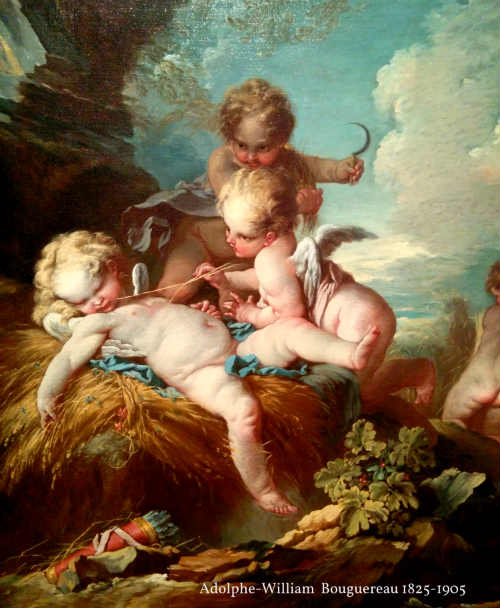Search:: Artists Alphabetically Artists by Country Artists by Century Artists by Movement
Victorian Classicism
"The only was for us to become great and possibly inimitable is to imitate the ancients." -- Johann Joachim Winckelmann, the great German scholar and art historian, from his treatise, Thoughts on the Imitation of Greek Works , published 1755
"The only was for us to become great and possibly inimitable is to imitate the ancients." -- Johann Joachim Winckelmann, the great German scholar and art historian, from his treatise, Thoughts on the Imitation of Greek Works , published 1755
The followers of Victorian Classicism found inspiration in Classical Greek and Roman literature, art, and architecture. This style of painting has a distinctly original elegance. This British movement shares many of the same elements as the Pre- Raphaelites and many of the artists aligned themselves with both schools.
Victorian Classicism is characterized by adhering to a narrow approach
to painting, following stringent academic compositional rules and
working from a limited palette. Followers of this movement were
influenced by the high standards of the British and European Art
Academies. The roots of Classicism can be found in Neoclassicism and Romanticism. According
to art historian, Walter Pater, "Works of art produced under this law,
and only these, are really characterized by Hellenic generality or
breadth. In every direction it is a law of restraint. It keeps passion
always below that degree of intensity at which it must necessarily be
transitory, never winding up the features to one note of anger, or
desire, or surprise."
British Victorian Classicism favored Greek, Roman and Renaissance themes. Imagery centered around Biblical stories, Arthurian legends and mythology. According to Solomon Gessner, the great German painter and art historian, "By studying the works of Greek sculptors the painter can attain the sublimest conceptions of beauty, and learn what must be added to nature in order to give to the imitation dignity and propriety.
Johann Wolfgang von Goethe: German poet, playwright, novelist, and philosopher argued that Greek art was an absolutely exemplary model from which a fixed canon determinative for the artists of all times could be derived; and that the composition of pictures should correspond strictly with the style of antiquity.
Masters of Victorian Classicism include, Frederick Leighton, John William Waterhouse andGeorge Frederick Watts. These painters had an extraordinary way of capturing nature's tempestuous, "untamed" qualities and yet, at the same time, create in the viewer an almost inspirational feeling of harmony and serenity. High drama, the natural world, and passion dominated the minds of these restless painters weary of conventional modern themes.

Example of a Classicism painting by Adolphe William Bouguereau
Important Painters of Academic Classicism Movement
Ivan Konstantinovich Aivazovsky, 1817-1900
Adolphe William Bouguereau1825-1905
Charles Emile August Carolus-Duran, 1837-1917
Leon Francois Comerre, 1850-1916
Pierre-Auguste Cot 1837-1883
Thomas Couture, 1815-1879
Paul Delaroche 1797-1856
Eugene Fromentin, 1820-1876
Jean Leon Gerome, 1824-1904
Jean-Paul Laurens1838-1921
Adolphe Alexandre Lesrel, 1839-1929
Luc Olivier Merson, 1846-1920
Hans Makart, 1840 - 1884
Giulio Rosati, 1858-1917
Franz Xavier Winterhalter, 1805-1873
William Clarke Wontner, 1857-1930
Fritz Zuber-Buhler, 1822-1896
© HistoryofPainters.com 2017
This text is Copyright © historyofpainters.com. Do not use without permission. If you like this page and wish to share it, you are welcome to link to it, with our thanks.
If you feel you have worthwhile information you would like to contribute we would love to hear from you. We collect essential biographical information and artist quotes from folks all over the globe and appreciate your participation. When submitting please, if possible, site the source and provide English translation. Email to historyofpainter@gmail.com